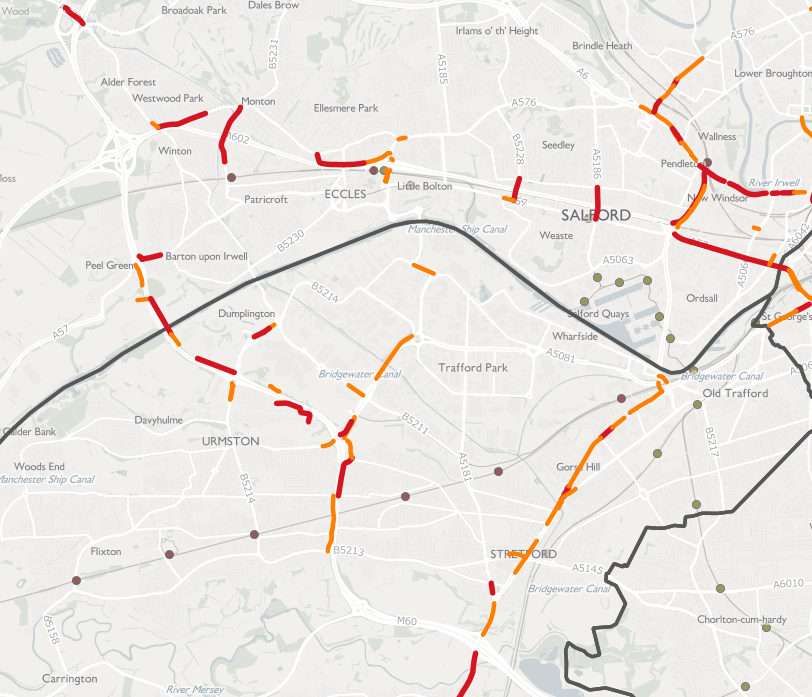
In July 2017 the Government identified 12 roads in Greater Manchester that breached air pollution laws. Now, the real figure is over 150, and many of them are in Salford.
Greater Manchester Combined Authority (GMCA), in partnership with Transport for Greater Manchester (TfGM) and Public Health England, have announced plans to combat poor air quality in Salford.
Tests show that 152 stretches of roads in Salford are at risk of breaching air quality laws beyond 2020.
Some of Salford’s worst affected areas include Chapel Street, Regent Road, Albion Way, Langworthy Road and Canal Bank in Monton. All these routes exceed 40.1 in the Air Quality Index, exceeding the legal limit.
Carol Boyce, Chairperson of Saving our Neighborhood is campaigning to improve air quality levels amid a large housing development on her road in South Swinton. She told Salford Now: We’ve been fighting this development on Campbell Fields, the old sewage works for many years. It all escalated this year when Salford City council finally passed their planning application with massive local opposition.”
Residents in the area have been concerned about air pollution levels for a number of years.
Ms Boyce goes on to say: “Rush hour morning and night it’s gridlocked. You can’t get out of your house. 241 new houses and one exit.”
GMCA have set out plans to tackle air pollution around Salford. These measures include introducing congestion charges and more cycle networks. 27 new trams are also due to be added to the Metrolink network by 2020. Greater Manchester Council are also looking to increase the number of electric vehicles in the roads by introducing incentives and growing the charging network across the city.
Greater Manchester Council actively try to reduce the amount of traffic on our roads by encouraging people to use public transport. But is this a feasible solution given the current issues with trains and trams in the North? Salford Now ran a poll to gauge public opinion.
Given the current situation of trains and trams in the North, is public transport a feasible alternative to driving? #SalfordNow #Salford
— Salford Now (@SalfordNow) 10 December 2018
In the plan GMCA say: “Work will continue throughout 2019 to finalise the Clean Air Plan. This may include a public consultation, depending on the package of measures in the plan.
“Once the final plan is agreed, we’ll bid for money from the Government’s Clean Air Fund to introduce measures to improve air quality as quickly as possible.”
We have contacted TfGM, but they are yet to respond.















Recent Comments